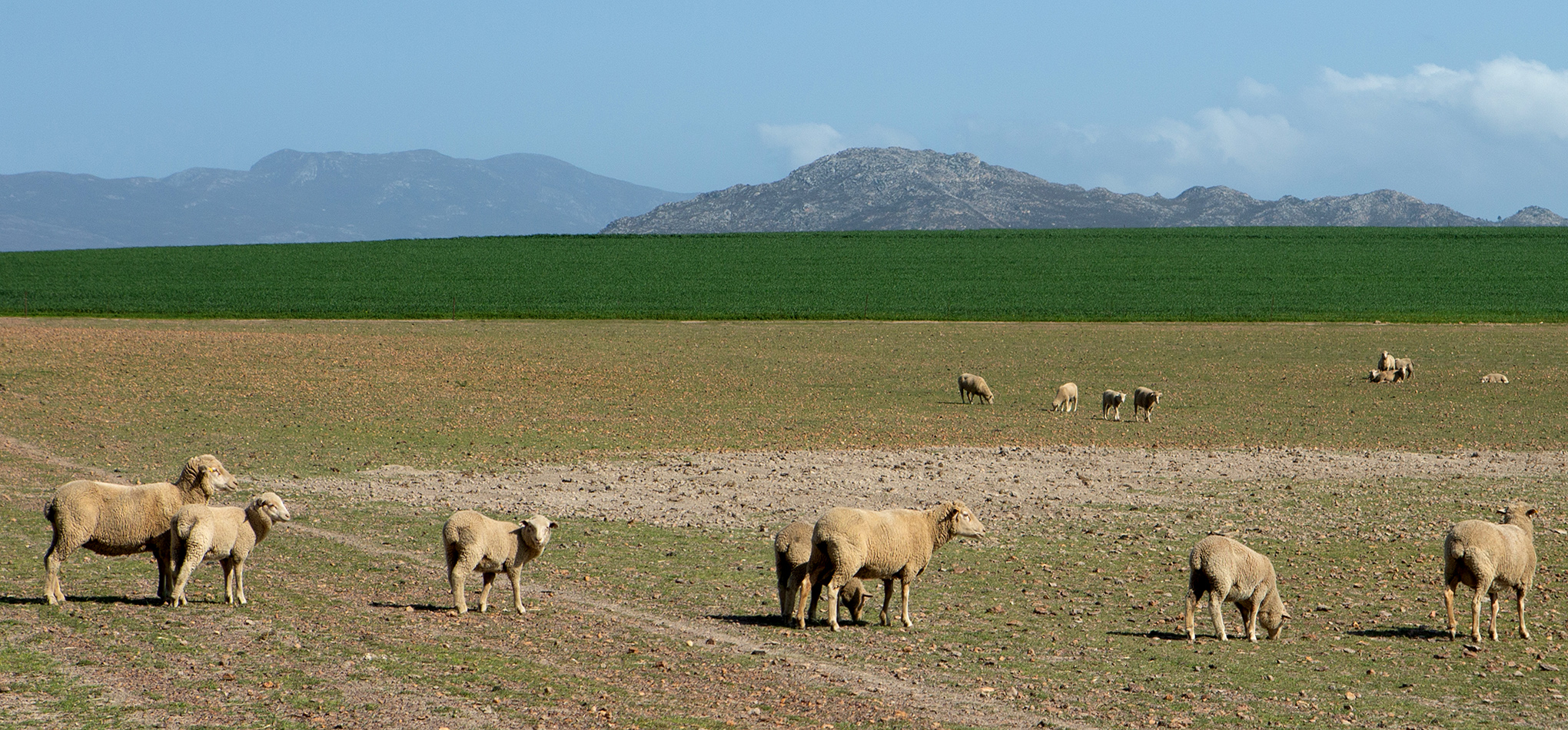A day dedicated to food was finally held at this year’s global climate gathering, the 28th Conference of the Parties (COP28) in Dubai, United Arab Emirates, emphasising fighting global hunger while aligning with the 1.5°C goal of the Paris Agreement.
The Food and Agriculture Organization (FAO) of the United Nations released a report on Sunday — Food, Agriculture and Water Day at COP28 — titled Pathways towards lower emissions; a global assessment of the greenhouse gas emissions and mitigation options from livestock agrifood systems. The report is an effort by the FAO to ensure the food production industry takes measures to align itself with lowering emissions and implementing mitigation measures.
 Livestock systems including sheep, goats, buffaloes and chickens, contribute about 12% of all anthropogenic greenhouse gas emissions. (Photo:Gallo Images / Misha Jordaan)
Livestock systems including sheep, goats, buffaloes and chickens, contribute about 12% of all anthropogenic greenhouse gas emissions. (Photo:Gallo Images / Misha Jordaan)
The report looks into emissions from livestock agrifood systems, land-use change and supply chain processes. The food and agricultural sectors rely heavily on natural resources such as water and land, placing a heavy impact on the environment.
Addressing the environmental impact of the food and agricultural sectors is in many ways tackling the climate crisis as food production contributes about a third of global greenhouse gas emissions. Livestock systems with sheep, goats, buffaloes and chickens contribute about 12% of all anthropogenic greenhouse gas emissions.
“This report estimates that, if implemented collectively, these improvements have the potential to reduce emissions from the livestock sector significantly, while still meeting the additional 20% animal protein demand projected by 2050.
“The most significant relative increase in total demand is anticipated in Africa, whereas the demand for animal products in Europe is expected to remain stagnant or even decrease. Asia would witness the most substantial increase in absolute demand to cater for the needs of its growing population,” the report noted.
Africa has the least appetite for meat, with FAO statistics showing that the average per capita meat consumption on the continent is 18kg. As far as emissions in the agricultural sector go, South Africa’s emissions have been increasing over the past three years, mostly due to cropland fires. Emissions climbed from 1.9 to 3.6 megatonnes of carbon emissions between 2015 and 2021.
On Friday, the United Nations Environmental Programme (Unep) launched a report highlighting how the food and agricultural sectors could lessen their overall emissions. The report stressed the importance of meat and dairy alternatives to reduce the environmental impacts of the global food system.
What’s cooking? An assessment of the potential impact of select novel alternatives to conventional animal products looks at three alternatives: plant-based meats, meats made from animal cells (lab-grown meat) and protein-rich products from rapid fermentation by microorganisms.
The report found that these types of food can play a vital role in reducing the impact of land degradation, deforestation, water and soil pollution and the loss of biodiversity, alongside reducing the risks of zoonotic diseases and antimicrobial resistance. They could also reduce animal welfare concerns.
The impact of food on the environment continues to be challenging due to the double ambition of reducing emissions in the sector while addressing world hunger. The impact of food and agriculture continues to be taxing, with half of the world’s habitable land and 70% of global freshwater being used for agriculture, while 78% of the pollution of waterways is caused by nutrient dumping.
“New food alternatives will offer a broader spectrum of consumer choices,” said Inger Andersen, the executive director of Unep.
“Further, such alternatives can also lessen the pressures on agricultural lands and reduce emissions, thereby helping us address the triple planetary crisis — the crisis of climate change, the crisis of biodiversity and nature loss, the crisis of pollution and waste — as well as address the health and environmental consequences of the animal agriculture industry.
“More government support, as well as open and transparent research, can help unlock the potential of these new technologies for some countries.”
Though meat alternatives are said to be a possible option, the mock-meat industries have seen a decline in investments and thus developments because of high prices and consumers being put off by the overprocessing of the products, Bloomberg has reported.
Meanwhile, meat consumption has increased due to rising incomes in middle and lower-income countries, contributing further to food emissions, which are expected to climb 60% by 2050.
In an effort to curb this increase, 134 world leaders and governments endorsed the Emirates COP28 Leaders Declaration on Sustainable Agriculture, Resilient Food Systems and Climate Action — the first declaration of its kind to be endorsed by world leaders.
Qu Dongyu, the director-general of the FAO, said: “[The] new FAO 1.5°C Roadmap and Emirates declaration will play a key role in promoting climate action and achieving all of the sustainable development goals [SDGs].
“We have to produce more with less. Agrifood systems must be transformed to be more efficient, more inclusive, more resilient and more sustainable to effectively contribute to food availability, accessibility and affordability, and to achieve all the SDGs.” DM




 Livestock systems including sheep, goats, buffaloes and chickens, contribute about 12% of all anthropogenic greenhouse gas emissions. (Photo:Gallo Images / Misha Jordaan)
Livestock systems including sheep, goats, buffaloes and chickens, contribute about 12% of all anthropogenic greenhouse gas emissions. (Photo:Gallo Images / Misha Jordaan) 